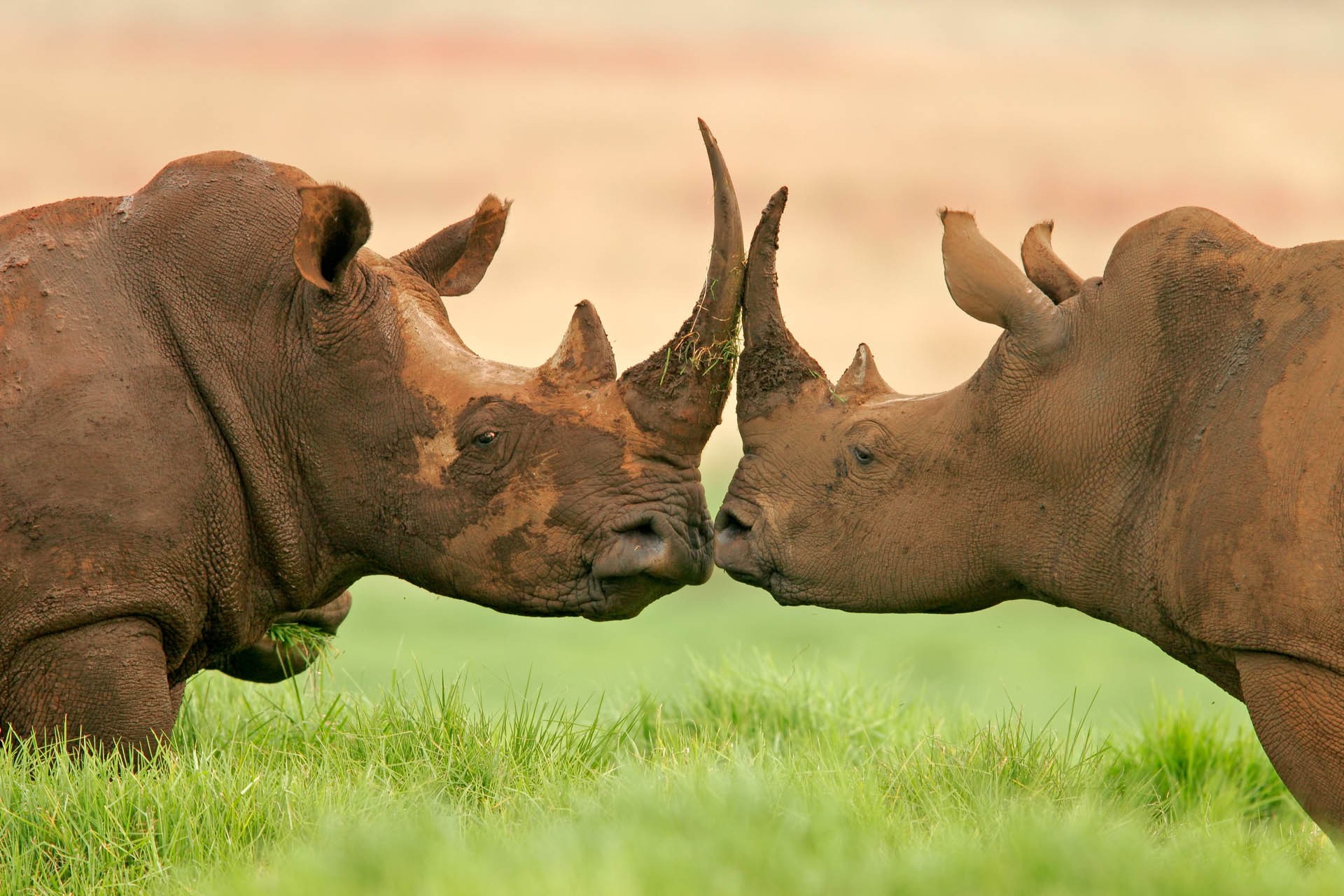
KEY PROJECTS AND PROGRAMMES
1. Rhino Security
- The Zululand Anti-Poaching Wing (ZAP-Wing): Established in 2012, ZAP-Wing is a public-private partnership that provides helicopter and fixed-wing aerial surveillance and reaction support to 26 game reserves in northern KZN, as well as aerial support to law enforcement rhino security operations. Fixed wing surveillance support is also provided to 2 Ezemvelo KZN Wildlife game reserves in the Midlands region; Read more…
- Supporting and equipping the specialized K9 and Horse Anti-Poaching Units working at selected reserves;
- Anti-Poaching Resources: Provision of additional equipment & technology to KZN game reserves, rangers and APU members;
- Ranger Training: Combat Human Tracking and Use of Force training to game reserve personnel engaging armed poaching gangs;
- Informant Funding: To improve intelligence gathering capabilities;
- Communications: Maintaining and supporting relationships and communications across game reserve and law enforcement boundaries.
2. Community Engagement, Education & Awareness
- ‘Rhino Art – Let Our Children’s Voices be Heard’: An education and awareness project run in conjunction with the world-renowned African modern-day explorer and humanitarian, Kingsley Holgate. This project has effectively reached over 500,000 school pupils in southern Africa and Vietnam with a hearts message that educates them on the value of conserving rhino and the role of international criminal syndicates in the rhino poaching crisis. It plays a positive role in assisting KZN’s game reserves build good relationships with their neighbouring, rural communities, with an educational theme that links Zulu culture and heritage to conservation; Read more…
- World Youth Rhino Summits: The Youth Rhino Summit programme aims to increase conservation awareness and mobilize the youth generation to speak out against the escalating poaching of rhino and global wildlife crime. Youth delegates debate critical issues influencing the rhino poaching crisis and interact with conservation leaders, building a worldwide call to action that started at the inaugural 2014 World Youth Rhino Summit, which brought youth delegates from 20 nations to the Hluhluwe-iMfolozi Park and launched the World Youth Wildlife Declaration. Read more…
- World Youth Wildlife Declaration: Already signed by thousands of youth following its unveiling at the 2014 World Youth Rhino Summit, the World Youth Wildlife Declaration has been endorsed by luminaries that include Archbishop Desmond Tutu, Dr Ian Player and Dr Jane Goodall – amongst others. A delegation of South African youth wildlife ambassadors will be heading to Hanoi, Vietnam later this year to present the World Youth Wildlife Declaration to leaders of Asian countries driving the demand for rhino horn, ivory and other endangered species.
- #RhinoShoutOutChallenge: This online social movement is being driven by South African schools and aims to generate the largest number of video messages ever recorded against rhino poaching and global wildlife crime from the youth generation.
- Sustainable Community Engagement: Human population needs are one of the greatest challenges to ensuring that protected wildlife areas remain pristine and sustainable. Project Rhino members recognise this and though much is already being done by game reserves to assist communities on their borders, there is rowing recognition of the need to engage poverty-stricken rural communities in traditional conservation practice, in ways that directly and sustainably benefit them.
3. Legislation & Judiciary
One of the greatest needs to stop rhino poaching, is to improve the level of successful arrests and prosecutions of poaching gangs and syndicate kingpins. Project Rhino is assisting state-led law enforcement efforts by petitioning for greater Judicial support, particularly for the establishment of a dedicated Wildlife and Environmental Crimes Court in KwaZulu-Natal. Legal assistance and other resources are also provided to aid the prosecution in their fight to obtain convictions.
Another area of intervention is the provision of expert knowledge to rangers and game reserve management who are increasingly being drawn into armed engagements with heavily armed poaching gangs who don’t hesitate to shoot at anti-poaching units: the legal use of force in these situations is a new development for the conservation sector and Project Rhino is rolling out an in-situ training and awareness strategy to assist them deal with potentially lethal situations.
4. Lobbying & Strategic Relationships
Political will, greater government recognition of the impact rhino poaching has on other sectors of society – including tourism, rural economic development, international relations and fighting crime – is a critical priority. Project Rhino lobbies and builds relationships with key stakeholders at provincial, national and international levels to raise awareness of the plight of not just rhinos, but also of the conservation personnel who are putting their lives on the line in the name of duty, and their need for much greater support. Church leaders, government ministers, business leaders, local celebrities and the media form part of the growing Project Rhino ‘circle of influence’.
5. Fundraising, Public Awareness & Accountability
Game reserves and the wider KZN conservation sector are pouring millions of Rands into KZN’s rhino security efforts, as government funding for conservation priorities becomes increasingly hard to obtain. Funding at both game reserve level and at a macro-level for both state and private game reserves is critically needed as the ongoing war against poaching syndicates intensifies.
Project Rhino provides both the public and donor sectors with an accountable funding channel and has helped to effectively stop questionable fundraising appeals in KZN that don’t reach the critical needs on the ground. Managed by a small Secretariat team, donor funds are channelled through a dedicated and fully registered non-profit Rhino Fund that is tax exempt and audited annually. Project Rhino members meet every two months to collectively decide on which anti-poaching needs require funding support. The association also acts as the voice of a united conservation community, maintaining public awareness of KZN’s ongoing efforts to protect its rhinos; at the same time, it is has become the conscience of the KZN rhino sector, ensuring accountability by all members to the wider public community who support our efforts.
